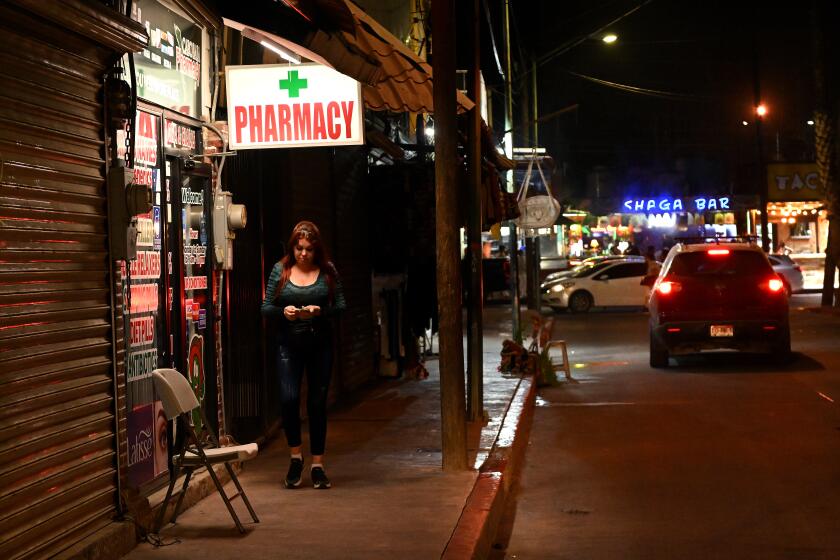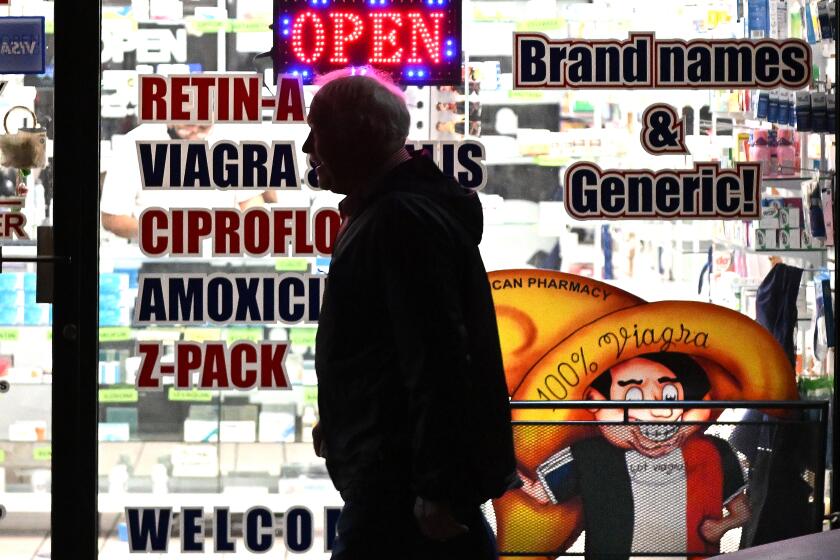Mexico, U.S. officials call for action after investigation into counterfeit medicine
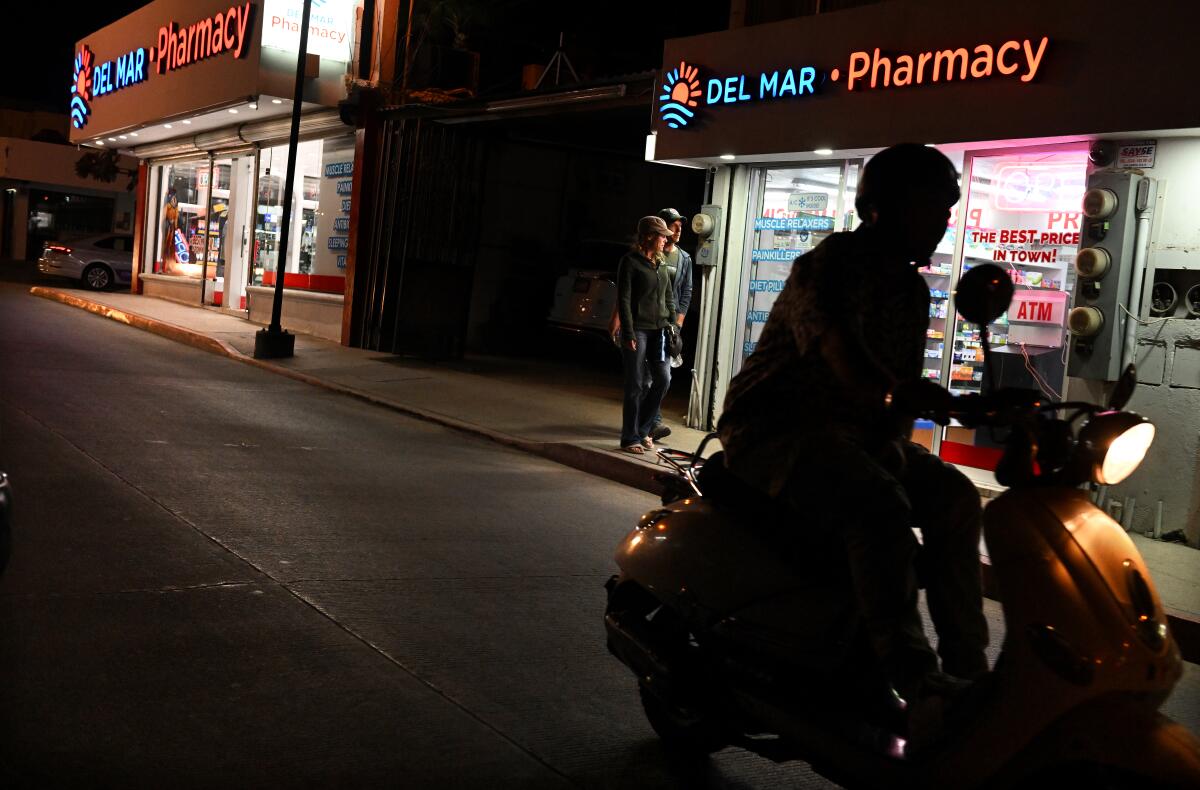
Officials from Washington, D.C., to Mexico City have begun calling for action after an “alarming” Los Angeles Times investigation revealed that some pharmacies in Mexico are selling counterfeit medication laced with powerful narcotics including fentanyl and methamphetamine.
Some lawmakers in the U.S. urged federal agencies to investigate, while others advocated pressuring Mexican authorities or considering new legislation. In Mexico, a federal prosecutor said her office plans to investigate the findings, which she described as “a new modus operandi” that raises concerning questions, including whether pharmacies are knowingly breaking the law.
The Times first detailed the phenomenon earlier this month, after reporters traveled to three cities in northwestern Mexico and tested 17 pills purchased over the counter from pharmacies. Twelve tested positive for fentanyl or methamphetamine.
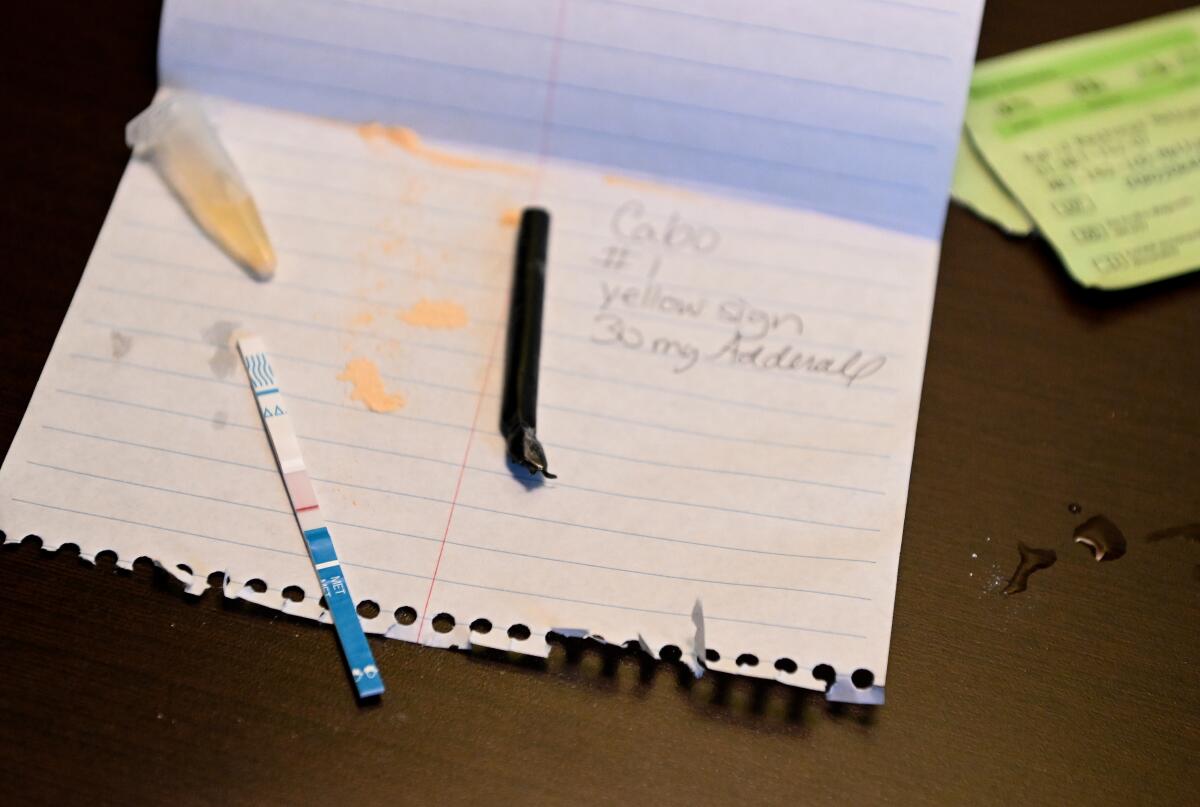
The findings echoed those published in a recent UCLA study that examined 45 pills purchased at pharmacies in the same region. Drug market experts said the likely sources are cartels looking to expand their customer base with a cheap and easy-to-make drug: fentanyl.
Although fentanyl has been appearing for years in pills and powders bought on the street, its presence in medications offered at legitimate pharmacies catering to tourists could signal a dangerous new shift in the fentanyl crisis.
U.S. Sen. Ed Markey (D-Mass.) called the Times’ reporting “alarming” and called for a swift federal response.
“I urge the State Department to consider issuing an advisory to alert travelers to this potential threat, and I call on the DEA and FDA to immediately investigate these findings,” Markey, who was a member of the U.S. Commission on Combating Synthetic Opioid Trafficking, said in a statement. “No one should suffer an overdose from a counterfeit drug, especially one sold at a pharmacy.”
Jeremy Khan, a spokesman for the U.S. Food and Drug Administration, said in a statement that while it does not regulate products intended for other countries’ markets, “the agency recommends that U.S. consumers obtain all prescription drugs from a U.S. licensed pharmacy and avoid products not intended for the U.S market as they may not have reliable evidence of safety and effectiveness.”
The White House Office of National Drug Control Policy said in a brief statement it plans to “work closely with the Government of Mexico” to “crack down on trafficking operations.” The U.S. Drug Enforcement Administration referred all inquiries to the State Dept. or to Mexican authorities.
The State Dept. “has no higher priority than the safety and security of U.S. citizens overseas,” a spokesperson said in a statement. “We will not go into detail about any U.S. citizens impacted by counterfeit medication due to privacy considerations,” the spokesperson added.
Pharmacies in several Mexican cities are selling counterfeit prescription pills laced with fentanyl and meth and passing them off as legitimate pharmaceuticals.
Asked about the findings, another State Dept. spokesperson, Ned Price, told reporters during a Feb. 2 news briefing that he was “not immediately aware of individual cases.” However, he said, “we are intimately aware of the threat that is posed by fentanyl, not only to U.S. tourists in Mexico, but to Americans and to people around the world.”
The calls for action come a month after President Biden paid a visit to his Mexican counterpart, President Andrés Manuel López Obrador, to discuss immigration, security and fentanyl trafficking. The trip marked the first time a U.S. leader has visited the country in almost a decade, amid tensions driven in part by disagreements over how to handle the drug war.
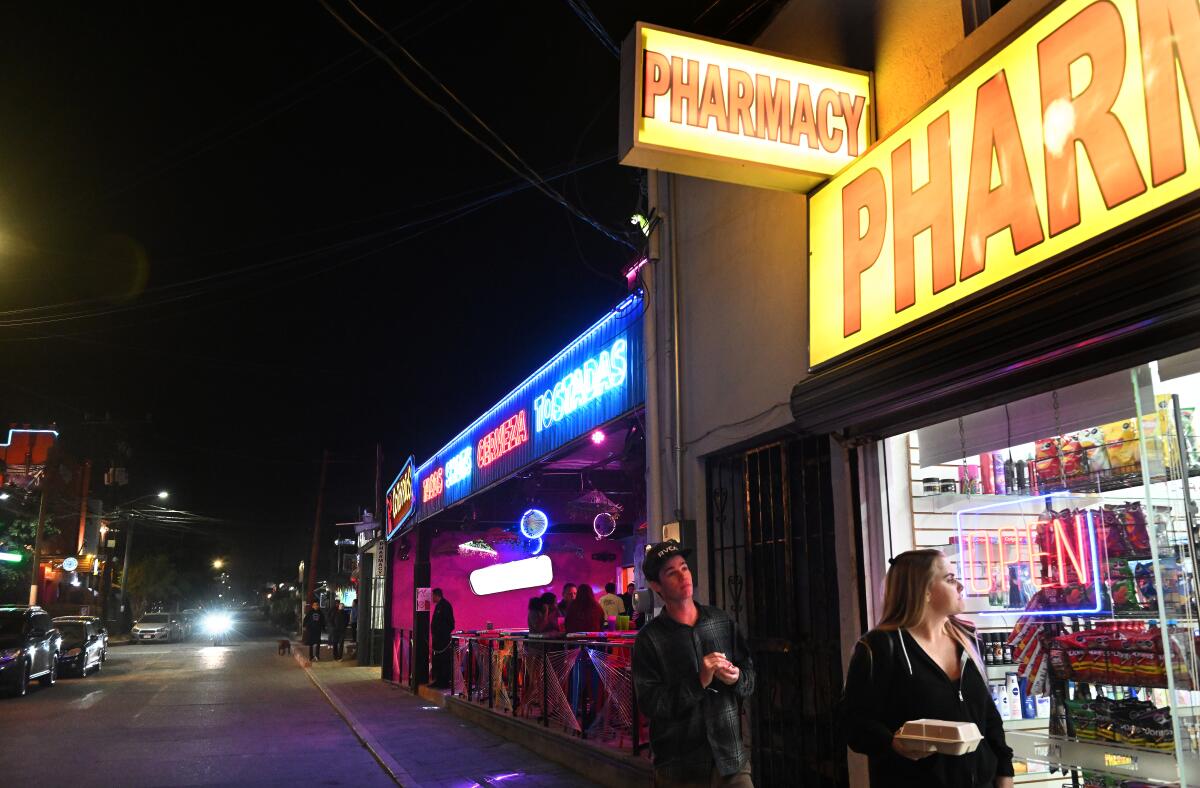
Neither country’s leaders have directly addressed this possible new front in the fentanyl crisis. Only one Mexican official — Gilda Alejandra Llera Muñoz, of the attorney general’s office in Mexico City — responded to the Times’ requests for comment.
Llera, a federal prosecutor with a focus on fentanyl-related crimes, called pharmacies selling fentanyl-laced counterfeit pills “a new modus operandi that we haven’t detected before.”
She said authorities in Mexico “need to find where in the process they’re faking the pills” and to determine “if pharmacies are involved in criminal activity or they don’t know if they are selling medications with fentanyl.”
Llera added that her agency is “sure that cartels are involved” in producing and distributing tainted fake pills such as the ones reporters purchased last month in pharmacies in Tijuana, Cabo San Lucas and San José del Cabo.
She said cartels’ drug distribution tactics are “changing really fast,” and she planned to send The Times’ reporting to authorities in Tijuana, Los Cabos and their respective states on the Baja California Peninsula “so they can [be made] aware of the new modus operandi and can make visits to these pharmacies.”
A Times investigation found that some farmacias in Mexican tourist towns are selling prescription drugs laced with fentanyl and methamphetamine. The question is, why?
U.S. Rep. Jim Banks (R-Ind.) called on Congress to take action in response to the findings. He has repeatedly urged the Biden administration to do more to address the fentanyl crisis and introduced legislation last month that would reduce the amount of fentanyl needed to trigger a harsh mandatory minimum sentence.
“Reports that illicit fentanyl is being deceptively sold in state-regulated pharmacies are disturbing and unacceptable,” Banks said in a statement. “Congress should use the power of the purse to hold the Mexican government accountable and demand stronger efforts to stop the flow of fentanyl across our southern border.”
U.S. Sen. Kyrsten Sinema (I-Ariz.) said in a statement responding to The Times’ reporting that “counterfeit medications mixed with fentanyl and meth are serious, life-threatening risks to all Arizonans.”
Markey, who has studied the American overdose crisis as a member of the Senate’s Committee on Health, Education, Labor and Pensions, said “counterfeit pills sold in Mexican pharmacies could pose a fatal threat, not only to Mexicans, but to Americans vacationing and traveling in Mexico and those filling their prescriptions south of the border.”
To California state Sen. John Laird, that potential threat is ample reason to explore state-level legislation to address the problem.
“These places are close at hand, and Americans travel to these locations, and they are at risk in a way that wasn’t apparent before,” the Santa Cruz Democrat said, as The Times reported in its initial investigation earlier this month. “And I think that as this story comes out and we learn further details, we’re going to have to look to see if there’s any state legislation that needs to be looked at.”
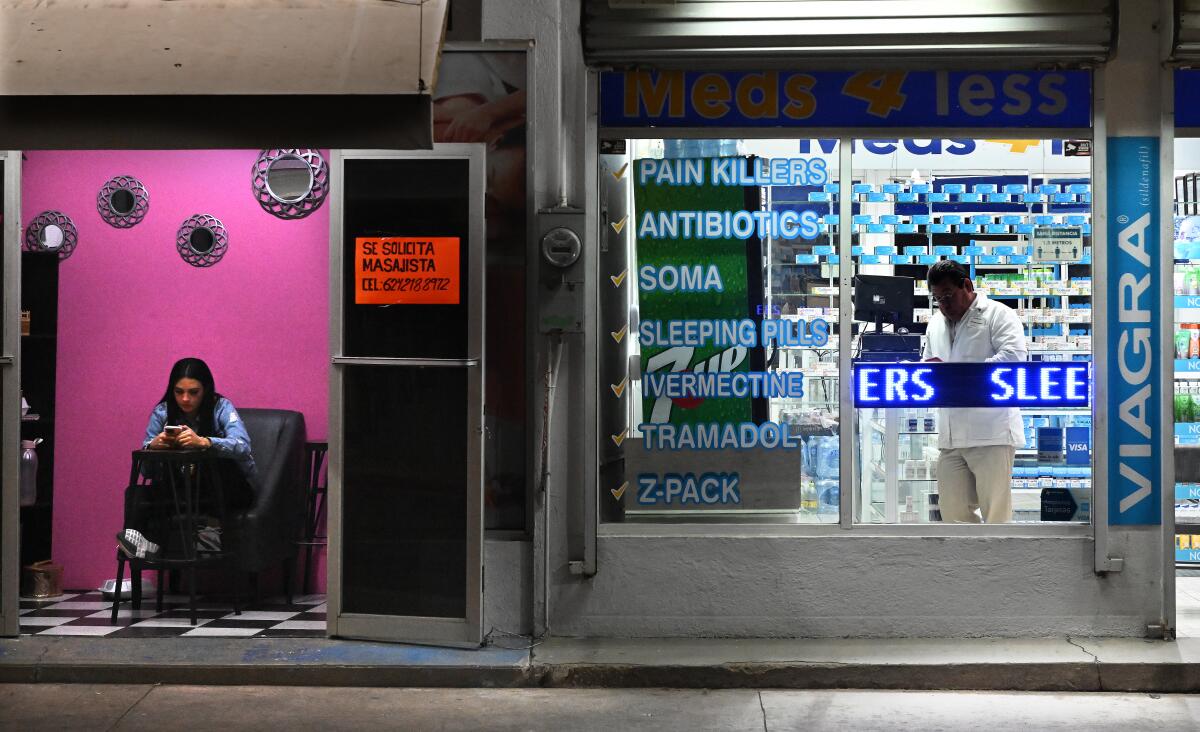
But some experts cautioned against laws that would increase criminal penalties, which Laird did not propose but have historically been the nation’s approach to addressing new drug threats. Steffanie Strathdee, a distinguished professor of medicine at UC San Diego and co-author of the UCLA-led study, said that would be the wrong approach.
“We just have to look back to what happened to crack cocaine, when we separated that out from other drugs and villainized people who were using a certain drug,” she said. “In the case of fentanyl, people are unknowingly using it, so it would be even more inappropriate to punish users.”
According to Leo Beletsky, a harm reduction expert and professor of law and health sciences at Northeastern University, it would be more constructive to make healthcare and prescription medications more accessible in the U.S.
“The fact that there is demand for prescription medications in Mexico is a symptom of the fact that those medications are hard to get or too expensive in the U.S.,” he said.
“I think the knee jerk reaction is … to double down on penalties and interdiction efforts to, quote, ‘stop the flow of drugs into the US.’ It’s almost like a joke at this point. We’ve been doing that for over 100 years; it’s only made matters worse.”
More to Read
Sign up for Essential California
The most important California stories and recommendations in your inbox every morning.
You may occasionally receive promotional content from the Los Angeles Times.
